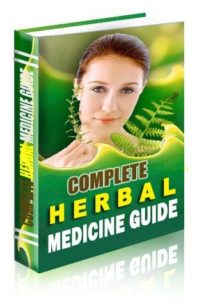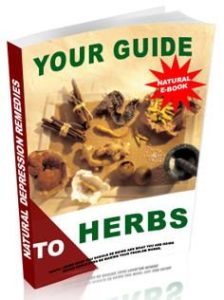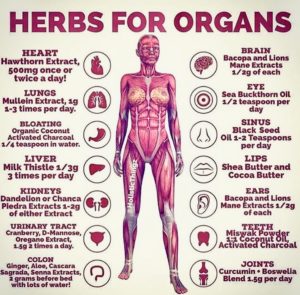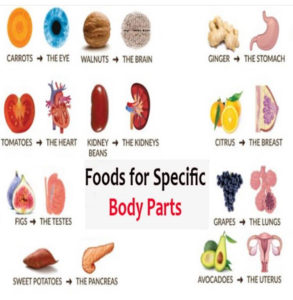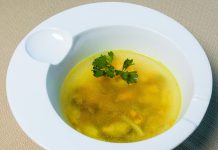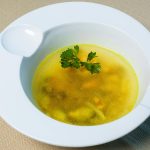8 Natural Remedies for Joint Pain

By: Organic Authority
Aches, pains, and joint stiffness. They come not only with age, but also with arthritis, lupus and other chronic ailments. While many people find help from pain relieving drugs like ibuprofen, naproxen, and other anti-inflammatory medicines, those medicines can be harsh on your body.
Using natural treatments for joint pain and stiffness can make a big difference in the amount of medication you need to take. We’ve outlined some great herbal and homeopathic remedies to relieve stiffness and pain.
Herbal remedies, healthy foods, and exercise are all great ways to help relieve joint pain and stiffness. While it’s important to check with your physician before adding herbs to your existing medications, the herbs listed in this article may help you decrease the amount of prescription medicine you are taking. This in turn can help ease stomach issues and lessen the chances of these medications affecting your liver.
1. Cayenne
Known for its spicy-hot taste, cayenne makes an excellent topical ointment that relieves joint pain. Rubbing cayenne on the affected area causes a mild irritation, which in turn “distracts” the nerves from the more severe joint pain. Repeated topical applications of cayenne pepper can reduce arthritis pain significantly.
To make a topical paste, mix 2 tablespoons of cayenne pepper with 1/2 cup of cocoa butter, lanolin, or coconut oil. Apply it directly to the sore joint. You can also mix 1/2 teaspoon of cayenne pepper with 1 cup of apple cider vinegar and soak sore hands or feet for 20 minutes to reduce pain and inflammation.
2. Fruit Pectin & Grape Juice
The combination of pectin, which is found in the cells of many plants, and grape juice can be of great use to people suffering from inflammation and joint pain. Grape juice is loaded with antioxidants, among them, anthocyanins, which are noted for their effect on reducing inflammation. Pectin is also believed to relieve fluid buildup in the joints of arthritis sufferers.
It’s best to purchase pectin from a health or natural foods store for the best quality. You want to make sure to select pectin that is free of MSG and other additives.
Mix 1/2 cup of grape juice with 2 tablespoons pectin. You can add water, if needed. Drink it twice daily for 6 weeks, and then reduce the frequency as symptoms disappear.
3. Licorice
Licorice acts much like your body’s own natural corticosteroids, which reduce inflammation. It also decreases free radicals at the site of inflammation and inhibits the enzyme production that’s involved in the inflammatory process. The key component in licorice, which blocks and relieves inflammation, is called glycyrrhizin. It supports the body’s release of cortisol, which suppresses the immune system and eases pain and frequency of arthritis flare-ups.
Licorice comes in a variety of teas, tinctures, or in supplement form. It’s important to note that licorice is not for everyone. People with blood pressure issues should avoid the herb altogether.
4. Flaxseed
Omega-3s are important for a strong immune system, but did you know they also help fight inflammation? Flaxseed is one of the best vegan sources of Omega-3 fatty acids, which makes it even more important for arthritis sufferers. Animal fats can often lead to more inflammation, so making the choice to incorporate flaxseed into your diet will help you get the important Omega-3s without adding the animal fat.
Try to include two tablespoons of flaxseeds or flaxseed oil in your daily diet. You can add ground flax to cereals, yogurt, and even sauces and stews.
5. Stinging Nettle
Don’t let the name scare you, nettles are contain protein, calcium, phosphorus, iron, magnesium, beta-carotene, along with vitamins A,C, D, and B complex, all in a form that is easy for the body to use. It is also a terrific herbal remedy for all types of arthritis and gout.
The stinging nettle plant has fine hairs on its heart-shaped leaves and stems that are irritating to the skin. Although the hairs of stinging nettle are usually painful to the touch, when placed over a painful area of the body they serve to reduce pain, either by decreasing inflammatory chemicals or by interfering with the transmission of pain signals.
Nettles also have minerals including boron, calcium, magnesium and silicon, which ease pain while helping to build strong bones.
Stinging nettle is available in several forms including teas, capsules, tinctures, extracts, or whole leaf. Recommended dosage for capsule form is up to 1,300 mg/daily. Whole leaves can be applied directly to the painful area of the skin.
6. Turmeric, Ginger and Bromelain
Turmeric, ginger, and bromelain are all effective and natural treatments to relieve stiffness, swelling, and joint pain on their own. But in combination, these three substances each boost the other’s effectiveness. Take these in combination on an empty stomach twice a day for pain relief. All three substances can thin the blood, so those taking blood thinning medicine should first check with their health practitioners.
7. Get Moving
Light weight training and cardiovascular exercise are very important to relieve joint stiffness and pain. While the first thing you may want to do is curl up and lay down when joint pain strikes, it’s a great idea to get up and get moving. I find that a hot shower and some gentle exericise like yoga, Pilates, or light weight training really helps get your joints in motion and reduces the stiffness and pain. Light weight training can also strength the muscles surrounding your affected joint, thus providing it with more support.
Another great form of exercise to get relieve joint pain and stiffness is aquatic exercise. This non-impact workout allows you to slowly moving your joins through their range of motion.
8. Stock Up Anti-Inflammatory Foods
There are a number of foods that can reduce inflammation and swelling, which causes much of the pain associated with osteoarthritis. Foods like nuts and fatty fish, like salmon are loaded with Omega-3s, that will help fight inflammation. Other great sources of anti-inflammatory foods include blueberries, kelp, horseradish, mustard, garlic, onions, watercress, parsley, celery, pickles, lemon, and rose-hip tea.



?



